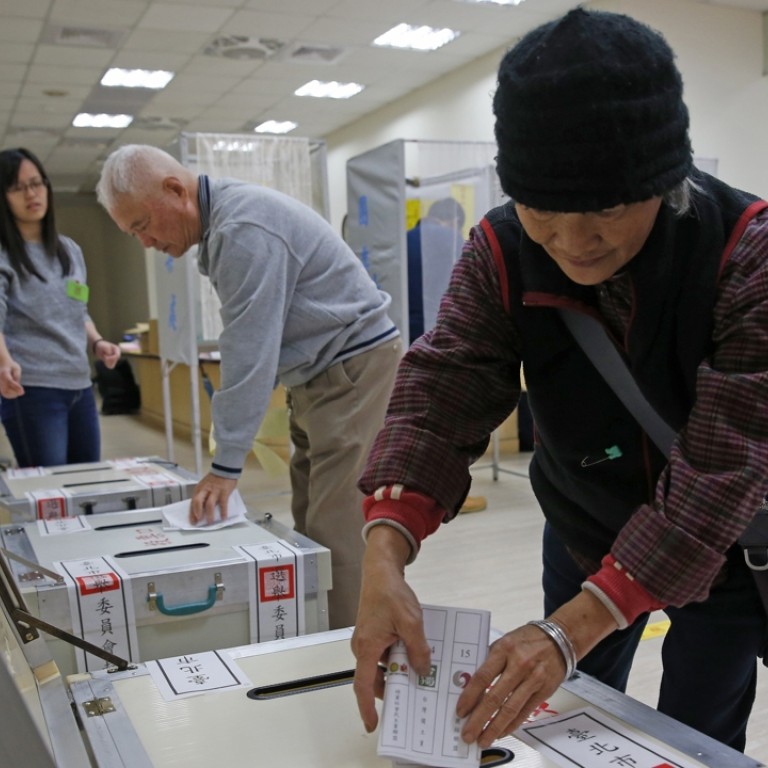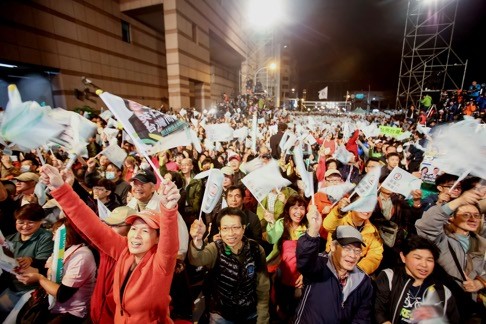
New | Taiwan’s ailing economy poses tough task for president-elect Tsai Ing-wen
Taiwanese president-elect Tsai Ing-wen’s ability to resolve the island’s “rice bowl” issues will determine whether the public will approve of her government, analysts say
Uncertainty looms over how well Taiwan’s president-elect Tsai Ing-wen will be able to manage the island’s economic issues to avoid her suffering the same fate as outgoing leader Ma Ying-jeou.
There are doubts over whether Taiwan’s first female president will be able to form a capable cabinet to help fulfil her promise of a good life for the people without having to rely on economic sweeteners from the mainland.
READ MORE: Taiwan’s president-elect Tsai Ing-wen faces crisis as cabinet quits en masse
Fed up with the island’s ailing economy and Ma’s poor performance, the Taiwanese people on Saturday gave their votes to Tsai and her pro-independence Democratic Progressive Party, winning her a landslide victory over the Kuomintang’s presidential candidate Eric Chu Li-luan.
Analysts say the state of the Taiwanese economy played a big role in helping Tsai secure her win, as many former KMT supporters who found themselves unable to afford homes even after working hard all their lives, swung towards other parties or abstained from voting altogether.

On top of “rice bowl” issues, including low income and high living costs, Tsai must address skyrocketing home prices, retirement pension reform and elder-care services – areas she promised during campaigning that she would improve. Her ability to resolve these issues would determine her DPP government’s approval rating, Wang said.
A senior DPP official, who asked not to be named, said Tsai was likely to form a cabinet with many financial and economic experts after she takes office.
“Former financial minister Lin Chuan, former vice-premier Lin Hsin-yi, incumbent central bank governor Perng Fai-nan and Kaohsiung mayor Chen Chu are possible choices of premier for the new cabinet,” the official said.
[The economy] is a top-priority task Tsai must handle if she is to avoid Ma’s fate
Lin Chuan, who has long advised Tsai on economic policies, is seen as the most likely candidate.
Tsai has told voters her first step to improve the economy, which shrank by 1 per cent in the third quarter, would be to promote five innovative research projects covering green technology, the internet, biomedicine, intelligent machinery and the national defence sector.
READ MORE: Pressing issues: four things Taiwan’s president-elect needs to tackle before she’s sworn in
She would also adopt a “south-bound policy” to diversify investments and encourage firms not to rely too heavily on the mainland by moving their investments to the Association of Southeast Asian Nations and India instead.
But analysts question the feasibility of Tsai’s plans, saying that some of them – like the “south-bound policy” and developing the biomed industry – had long been introduced by the KMT without much effectiveness.

Ma follows a pro-Beijing policy that has seen rapid economic exchanges between the two sides.
Analysts say that with the mainland buying 40 per cent of Taiwan’s exports, it will be hard to Tsai to reduce economic reliance on Beijing. And in the event of any rise in cross-strait tensions, the economy is bound to suffer.
“Beijing might slowly remove its economic bonus for mainland-based Taiwanese businessmen,” a Shanghai-based Taiwanese business executive said. “We are also concerned that our interests will be neglected [with the] so-called ‘south-bound policy’.”

